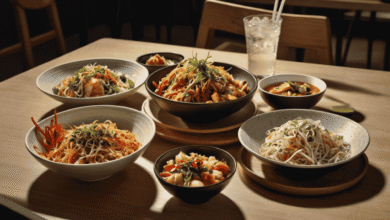Why Colombian Coffee Deserves Its Own Café Culture

Few things are as universally adored as a good cup of coffee. Across continents and cultures, this rich and aromatic beverage brings people together, whether it’s a quiet morning ritual or a lively conversation at a bustling café. But when the conversation turns to great coffee, one name consistently rises to the top: Colombian coffee. Renowned globally for its smooth, well-balanced flavor and high quality, Colombian coffee has carved out a space in the world’s coffee consciousness. And yet, there’s a surprising gap in the global café scene: while Italian espresso bars and French patisseries thrive, a true Colombian café culture remains underrepresented on the world stage.
This raises an important question: why doesn’t Colombian coffee have a café culture of its own on the global map? More importantly, why should it? In this article, we dive deep into Colombia’s unique coffee legacy, explore the cultural and economic significance of its beans, and make the case for a thriving, global café culture built around this remarkable brew.
The Origins of Colombia’s Coffee Legacy
To understand why Colombian coffee deserves its own café culture, it’s important to look back at how it all began.
Colombia’s relationship with coffee dates back to the early 18th century. Its lush mountainous terrain, high elevation, tropical climate, and fertile volcanic soil make it one of the most ideal places on earth to grow Arabica beans. Over time, coffee became deeply intertwined with Colombian identity, not just as an export product, but as a source of national pride, local tradition, and rural livelihood.
Colombia is the third-largest coffee producer in the world, following Brazil and Vietnam, but it consistently ranks first in terms of specialty-grade Arabica beans. Unlike the mass-produced Robusta beans often used in commercial blends, Arabica beans are prized for their complex flavor profiles, with subtle notes of caramel, chocolate, citrus, and even floral undertones.
The Colombian coffee industry is also built on hand-picked harvesting techniques and small, family-run farms. These producers follow generations-old traditions, ensuring that quality is prioritized over quantity. This commitment to excellence is what places Colombian coffee in a league of its own.
What Makes Colombian Coffee So Special?
Coffee connoisseurs often say that Colombian coffee tastes like “sunshine in a cup.” That poetic praise isn’t an exaggeration.
Here are a few reasons why Colombian coffee is considered some of the best in the world:
1. Unique Geography
Colombia’s mountainous terrain allows beans to grow at altitudes of up to 6,000 feet. The combination of rich soil, regular rainfall, and stable temperatures creates optimal growing conditions. These environmental factors influence the coffee’s acidity, aroma, and flavor.
2. High-Quality Arabica Beans
Colombian coffee is almost exclusively made from 100% Arabica beans, which are known for their smooth taste and reduced bitterness compared to Robusta beans.
3. Hand-Picked Perfection
Coffee cherries in Colombia are hand-picked to ensure that only ripe beans are harvested. This attention to detail results in a consistently high-quality product.
4. Microclimates and Regional Flavors
Different regions in Colombia offer unique tasting notes. For example, coffee from Huila tends to be fruity and sweet, while coffee from Antioquia might have nuttier, more chocolatey tones. These regional flavor profiles deserve to be celebrated just like wine varietals.
The Cultural Significance of Coffee in Colombia
In Colombia, coffee isn’t just a crop; it’s a way of life.
The “Zona Cafetera” or Coffee Triangle, comprising Caldas, Risaralda, and Quindío, is the heartland of Colombian coffee production and a UNESCO World Heritage site. The area is not only breathtakingly beautiful but also culturally rich, with traditional farms known as fincas, coffee museums, and vibrant festivals that celebrate the journey of the bean from plant to cup.
Drinking coffee in Colombia is more than a caffeine fix. It’s an experience marked by hospitality, warmth, and a sense of community. Local cafés or tiendas de café serve as social hubs where people gather to share stories, celebrate milestones, and engage in meaningful conversations.
This unique cultural relationship between people and coffee is exactly what makes Colombian coffee a prime candidate for its own global café culture.
Why the World Needs a Colombian Café Culture
So, if Colombian coffee is so exceptional, why hasn’t a global café culture blossomed around it?
The answer lies partly in branding and partly in globalization trends. Italian espresso, Turkish coffee, and American drip have dominated the café scene largely because of historical expansion and export-driven marketing. Meanwhile, Colombian coffee has often been sold as a premium ingredient rather than a complete experience.
That needs to change.
Here’s why Colombian coffee deserves its own global café culture:
1. Celebrating Origin and Craft
The story of Colombian coffee, its geography, harvesting practices, and social impact, adds depth and authenticity to every cup. A café culture can bring that narrative to life, creating a space where consumers connect with the bean’s origin.
2. Educational Opportunities
Cafés dedicated to Colombian coffee could educate consumers on regional varieties, sustainable farming, and the importance of fair trade practices. It’s a chance to make coffee not just consumable but conscious.
3. Flavor-Forward Experience
Colombian coffee is known for its layered complexity and smoothness. A dedicated café can showcase the nuances of flavor through cupping sessions, tasting flights, and innovative brewing methods like Chemex, V60, or siphon brews.
4. Cultural Immersion
From Colombian pastries like buñuelos and arepas to folk music and rustic décor, a Colombian café culture could offer a fully immersive experience, one that appeals to tourists, foodies, and everyday coffee lovers alike.
Building a Global Colombian Café Scene
Establishing a Colombian café culture doesn’t mean replicating Starbucks with a Colombian twist. It means crafting something uniquely Colombian, an authentic representation of the country’s people, history, and flavor.
Here are some ways it could evolve:
- Locally-Owned Colombian Cafés Abroad: Empower Colombian entrepreneurs to open coffee shops that serve as cultural ambassadors in major cities around the world.
- Tourism and Coffee Trails: Promote café-style tourism within Colombia, encouraging visitors to explore the Coffee Triangle with curated tours and workshops.
- Colombian Coffee Festivals: Global festivals dedicated to Colombian coffee, featuring baristas, farmers, artists, and musicians from Colombia.
- Collaborations with Colombian Artisans: Incorporate Colombian art, textiles, and ceramics into café design and merchandise to support local craftspeople and create a distinctive visual identity.
Supporting the Farmers Behind the Beans
Creating a café culture around Colombian coffee is also about honoring the farmers who make it all possible. Over 500,000 Colombian families rely on coffee farming, and many of them do so on small plots of land that have been passed down through generations.
Fair trade partnerships, direct-to-consumer models, and farmer co-ops can ensure these producers are paid fairly and treated ethically. A café culture that prioritizes transparency and equity could set a new standard for the industry.
Conclusion: Brewing Culture and Community – The Mecatos Experience
As the world slowly awakens to the rich potential of Colombian coffee culture, it becomes clear that we need more than just a good roast; we need places that reflect the heart of Colombian tradition. Cafés are not just about caffeine; they are about community, comfort, and cultural expression. That’s exactly the kind of experience that dedicated Colombian coffee shops can bring to neighborhoods worldwide. More importantly, cafés that embrace Colombian roots can serve as vibrant cultural bridges, inviting people to taste, learn, and connect through coffee.
One shining example of this growing movement is Mecatos Bakery & Cafe, a Colombian-inspired café concept that’s setting the standard for authentic Latin flavors and warm hospitality. Mecatos Bakery & Cafe offers a unique fusion of traditional Colombian bakery items, gourmet coffee drinks, and a welcoming environment that reflects the warmth of Latin American culture. From flaky pan de bono and cheesy almojábanas to expertly brewed Colombian coffee, every item at Mecatos is a celebration of heritage. Their convenient locations continue this tradition, offering customers not just a quick coffee break but a meaningful cultural experience infused with flavor and hospitality.
By championing the values of quality, authenticity, and community, Mecatos Bakery & Cafe represents what the future of Colombian café culture can look like. These cafés don’t just serve coffee; they serve stories, memories, and a taste of Colombia that’s deeply personal and proudly shared. As more people seek out meaningful connections with their food and drink, the rise of authentic Colombian cafés like Mecatos is essential. With every cup poured and every pastry served, they are helping Colombian coffee claim the cultural space it has long deserved.




